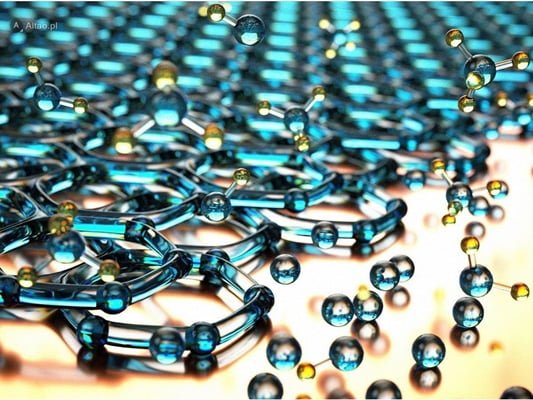According to Sarkar, currently some 420 certified nanotechnology products are being produced by 170 firms inside Iran.
Iran is now exporting its nano-products to such developed states as South Korea, China, Australia, the UK, Germany, Spain, Italy, and Russia, he noted.
He also expressed the hope that the country would be able to increase the quantity of its exports in coming years even though it has had considerable progress in the development of its markets.
“As of 2013, we have witnessed a 100% growth in the development of our markets each year. By March 2017, we managed to export IRR 7,000 billion worth of nanotechnology products,” he added.
Sarkar says the country aims to increase the value of its nano exports to IRR 30,000 billion by March 2020.
For a brief review of Iran’s achievements in various fields of science and technology, check the book “Science and Technology in Iran: A Brief Review”
In the first part of his interview with the Iran Front Page, Sarkar was quoted as saying that after the establishment of the INIC in 2003, a 10-year strategic document was developed for the emerging technology.
“In that 10-year document, the focus was mostly on the promotion and training of human resources in the field of nanotechnology,” he said.
However, he says, once the first 10-year document was over in 2015, a second 10-year document was developed, in which the focus was on further industrialization of nanotechnology as well as the development of market and export.
“Today, if a nanotechnology meeting is to be held between the world’s top ten countries, Iran is definitely a major part of that meeting,” he noted.
How Iran Turned into Exporter of Nanotechnology
Sarkar says the Islamic Republic’s achievements in the field of nanotechnology are globally unique. “Wherever we talk about them, people are surprised to find how Iran managed to reach such a level of progress.”
He referred to the anti-Iran sanctions as one of the main barriers that could hinder the development of nanotechnology in Iran.
“We needed advanced laboratory equipment for our research and training, but whenever we tried to buy them, they said they couldn’t sell them to Iran because of sanctions,” he added.
Therefore, he said, Iran had no choice but to repair and renovate the old equipment it had and to design and build the equipment inside the country.
“We first found and collected all the equipment existing in our universities and research centres across the country. The broken ones were all repaired in cooperation with the INIC. We trained technicians for it and created a network to support all the labs that were members of the INIC,” he said.
“So we renovated the equipment and made them available to all nanotechnology experts across the country.”
“As the next step, we also managed to design and build 150 of these advanced pieces of equipment,” he said.
“These days, universities and research centres in Iran are using home-grown equipment, and even many of them are being exported to other countries as they are totally competitive in terms of price and quality,” he added.
“Iranian companies have turned into the rivals of foreign firms, which had boycotted Iran during the time of sanctions. This was a great step,” Sarkar noted.
Nanotechnology Exhibition to Bring World’s Leading Firms to Tehran
He further divided nanotechnology into three phases.
“The first phase is that we can synthesize and produce nano-material. Fortunately, we can say we have the knowhow of designing and making 90% of the nano-material currently available.”
“The country is currently mass producing those materials which have industrial uses,” he added.
“The second phase is that nanotechnology can be used to improve the efficiency and quality of existing products. We are trying to prepare the grounds for industrialists to use this capacity.”
“If they don’t pay attention to this issue and use nanotechnology in their industries today, their products will lose their competitiveness and markets in the near future,” he warned.
“Fortunately today we have managed to introduce nanotechnology to over ten industrial fields including pharmacy, health, textile production, construction, oil and petro-chemistry, agriculture, and auto manufacturing,” he added.
“The third phase is smart nanotechnology. In this phase, smart textiles, smart materials, and smart pharmaceuticals are released in the market with a very huge added value.”
“Therefore, we should not focus on the first two phases very much and forget the third phase. We have now focused on the third phase, and have already gained very good accomplishments which will soon be declared to the public,” he went on to say.
